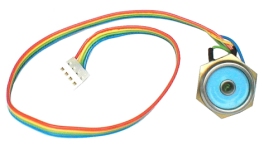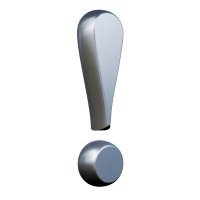|

Dear RTCU User,
Christmas time is approaching and we do not want to pass this
opportunity to spoil You, our trusted RTCU users, with nothing less than
the BIGGEST release announcement since the introduction of GPRS support in
our units!
Logic IO is committed to bringing you the most advanced and flexible
platform for GSM Telemetry/Telematics applications and we are proud to end
this year with a long list of new software and hardware features.
In the coming year we are going to focus on expanding the diversity and
easy deployment of our products. At the same time we will also come out
with new hardware products that will ensure us a place in the industry
lead position - this is where we want to be!
Today we are releasing a new version of the RTCU IDE and Firmware with
many exciting new features. Please visit
www.rtcu.dk
Please read all about the exciting news
below.
The Logic IO Team
wish You all
A Merry Christmas and A Happy New Year!
See you to another exciting year in 2005!
Multithreading has arrived!
This release of the Firmware for the RTCU A9i, RTCU M10 Series and RTCU
M11 Series includes comprehensive support for multithreading. The
multithreading extensions includes many important features that simplifies
the development of complex applications on the RTCU platform, including:
- Dynamic creation of threads using the new THREAD_BLOCK structure.
- Explicit thread status flag that shows if a thread is running.
- CHANNEL thread communication mechanism for easy passing of data
between threads.
- MUTEX support. Mutual Exclusion mechanism used for implementing
critical sections.
- SEMAPHORE support. The classical thread synchronization mechanism is
also available.
Multithreading your code can have many benefits, including:
-
Improve application responsiveness -- Any program in which many
activities are not dependent upon each other can be redesigned so that
each activity is defined as a thread.
-
Improve program structure -- Many programs are more efficiently
structured as multiple independent or semi-independent units of
execution instead of as a single, monolithic thread. Multithreaded
programs can be more adaptive to variations in demands than single
threaded programs.
-
Use fewer resources, compared to multiple program tasks.
The RTCU IDE on-line help and manual has been extended to include a
dedicated chapter explaining the features, advantages and pitfalls using
multithreading.
The RTCU IDE Manual is available
here
News in RTCU IDE version 4.50
- Support for THREAD,
SEMAPHORE, MUTEX and CHANNEL.
- RTCU Gateway and
Socket support in Simulator.
- The following
functions added to Simulator, Wizard and online help
- gsmCheckSMS()
- voiceBusy()
- boardWatchdog()
- owButtonGetID(), owButtonEnableLED(), owButtonSetLED()
- owSearch() and owTempGet()
- gsmMakeCallX()
- boardSetPassword()
- gpsFix(), gpsDistance() and gpsDistanceX()
- Board serial number
can now be changed in the simulator.
-
Simulator 4 line LCD changed to correct 2 lines.
- Simulator back light
intensity removed.
- Downgrade of large
project to small is now possible in all cases.
- Enhanced handling of
GPS simulator functionality.
- RTCU crash when
simulator tries to show RTC time after year 2038 has been fixed.
- Bug fixed in type
casting to a BOOL when upper 24 bit<>0 and lower 8 bits are 0.
- Problem where send
SMS messages from the IDE over GPRS in some cases failed has been fixed.
-
Enhanced on-line help.
For detailed information about
specific features the RTCU IDE Manual is available
here
News in Firmware version 4.70 (Large)
RTCU A9i, M10 Series and M11 Series
(Large) version 4.70:
- Multithread support with new construction
THREAD_BLOCK / END_THREAD_BLOCK.
Syncronization primitives: SEMAPHORE, MUTEX and CHANNEL.
- Query of GSM parameters is changed to non-blocking
during initial startup of unit.
- Support for receiving SMS messages during a
GPRS session with the new function gsmCheckSMS();
- SMS messages can now not be send during a CSD
session. This is to avoid problems with the IDE communication.
- New function to check if pending voice messages
are present: voiceBusy().
- New application software watchdog
functionality: boardWatchdog().
- getBoardProfile, index 14 now returns whether
on-board temperature sensor is present.
- sockSetTCPIP() bug fixed. Does no longer set
the phonenumber when called.
- gsmMakeCall() problem where the caller hangs up
immediately and the unit still indicates a connection has been
fixed.
- gsmHangup() can now interrupt gsmMakeCall()
during the dialling phase.
- serFrameReceiver() bug fixed where only sizeof
buffer-1 bytes could be received when running in framed mode.
- Recovery of Siemens MC35i GPRS attach problem
experienced in some rare cases with bugs in the GSM basestations.
- Switch to battery backup operation on the A9i
will not automatically shutdown the DO,DI and VDC circuits.
- Support for ID-Button, ID-Button reader with LED.
- Support for 1Wire temperature sensor.
- Persistent memory operations are now fully
multithread safe.
- New function to retrieve the SIM card number:
gsmGetICCID().
- New gsmMakecallX() function giving more information
about result of call than the present gsmMakecall() function.
Can also suppress calling number identification
- Sleep(delay:=0) will now release the remaining
part of the calling threads execution slice.
- Optimized driver code for Flash/FRAM access.
Now up to 10 times faster access!
- serOpen() now includes the possibility to set
the number of stop bits.
- Bug in GPRS RACP2 Authentication that makes
debug messages stop over GPRS has been fixed.
- New gpsFix() function that returns more precise
and detailed information than gpsInfo().
gpsInfoZ() present in beta versions are no longer supported.
- New gpsDistance() and gpsDistanceX to
supplement gpsFix()
Use of gpsInfo(), gpsPosition() and gpsGreatCircle() is not
recommended in new programs, even
though they will be supported in future firmware releases.
- New real time kernel implementation with much
faster taskswitch and less overhead.
- PowerDown() will now return to the applikation
with an error code if powerdown is not successfully.
- sockConnect() / sockListen() will not fault in
case of to many connections but return 0 instead.
- Number of available dynamic string changed from
200 to 400.
- Fix for negative return value in
logGetNumberOfRecords() and logGetMaxNumberOfRecords() when value
> 32767.
- Network status using gsmConnected() is now
updated (every 10 minutes) during a GPRS session.
- Enhanced recovery of Siemens MC35i GPRS lock-up
problem experienced in some networks.
- DeepSleep() will now degrade to a normal
Sleep() operation when the unit is connected to the RTCU IDE
For detailed information about
specific features the RTCU IDE Manual is available
here
News in Firmware version 4.52 (Small)
RTCU D4,A6 and A5 (Small) version
4.52:
- Support for logGotoLinsec() on small RTCU units
included.
- Query of GSM parameters is now unblocking
during initial startup of unit.
- gsmMakeCall() problem where the caller hangs up
immediately and the unit still indicates a connection has been
fixed.
- gsmHangup() can now interrupt gsmMakeCall()
during the dialling phase.
- serFrameReceiver() bug fixed where only sizeof
buffer-1 bytes could be received when running in framed mode.
- D4 Display. displayXY() changed to better
enforce the physical dimensions of the display.
- Persistent memory operations are now fully
async safe.
- New function to retrieve the SIM card number:
gsmGetICCID().
- SMS messages can now not be send during a CSD
session. This is to avoid problems with the IDE communication.
- Optimized driver code for Flash/FRAM access.
Now upto 10 times faster access!
- New real time kernel implementation with much
faster taskswitch and less overhead.
- PowerDown() will now return to the applikation
with an error code if powerdown is not successfully.
- Fix for negative return value in
logGetNumberOfRecords() and logGetMaxNumberOfRecords() when value
> 32767.
- DeepSleep() will now degrade to a normal
Sleep() operation when the unit is connected to the RTCU IDE
For detailed information about
specific features the RTCU IDE Manual is available
here
OneWire ID-Button and Temperatur sensor
The RTCU M11 Series and RTCU A9i includes support for connecting a broad
range of OneWire devices. Initial there will be support for ID-Buttons and
Temperature sensors.



The
ID-Button
(shown above to the left) can be read
by a ID-Button reader
(shown above to the right) connected to the RTCU
unit for
easy and secure identification of a person/item identified with a unique
ID-button. This can
be used for
numerous applications:
driver
identification, turning alarm on/off, usage registration etc. The
ID-Button itself is
a strong and extremely durable
coin-like metal container
with a unique
ID. The ID-Button is usually used with the ID-Button Fob (shown to the
left), that holds the ID-Button in place so that it is conveniently
available whenever needed.
The OneWire based external temperature sensor can measure temperatures
from -55 to 125 degrees Celsius with a precision of 0.5 degrees celcius.
Comes standard with 3 meter cable.
RTCU GPRS Gateway 1.4 released:
The RTCU GPRS Gateway 1.4 has been released with the following
minor updates:
- Now includes a feature to timeout and close on inactive socket after
a specified time period.
- The navigation in the client-list listbox has now been greatly
enhanced in the situation where many clients are connected.
Also see the section on the forthcoming RTCU GPRS Gateway Professional
below.
Vikingegaarden receives prestigous CITECT Award
We are proud to announce that
Vikingegaarden has won the prestigious award: "Best in
Innovation, Europe Award" from
Citect.
Vikingegaarden is using Logic IO for all its solutions, and the
CitectSCADA "All-in-one" driver, that won the award from Citect, is
specifically designed for use with Logic IO Products.
Citect is a global leader in industrial automation and information
management. In terms of both revenue and market, it is one of the top
5 multi-national, Australian-owned technology companies.

Read the full press release
here
Updated Advanced Tracking Demo V1.01
The Advanced vehicle tracking demo application has been through a
small update to use the new gpsFix() and gpsDistanceX() functions. No
other changes was made.
Updated RTCU MICRO Application
with Temperature sensor support
Our RTCU MICRO Standard Application now includes support for the
external OneWire temperature sensor. A threshold for low and high alarm
can be set an the program will send a SMS when the temperature goes
beyond these thresholds and another SMS when the temperature is within
the limits again.
Coming soon: Internal battery pack for the M11
Series
The Internal battery pack product for the RTCU M11 Series fits
inside the M11 unit and includes NiMh batteries and the necessary
battery charging circuit necessary for efficient charging. The
Internal battery pack will be available with 650 mAh or 1300 mAh and
the charging time is as low as 2 hours. The product can be fitted by
the customer and will be generally available in February 2005.
Coming soon: RTCU GPRS Gateway Professional
The RTCU GPRS Gateway Professional version 1.00 is close to being
released and includes many advanced features and a defined roadmap
with many important features:
- Can run as a Windows Service. This means that the Gateway
service will start without Windows logon and can also be remotely
managed as a service.
- Remote access via the included Windows GUI or via TELNET.
- Full password protection for remote access.
- Up to 10 client keys supported, for more flexible password
management.
- Disconnect timeout for inactive clients.
- Advanced filtering feature allows monitoring/logging on specific
client and/or logging level.
- Designed for several thousand clients and massive traffic.
- Encrypted traffic (available later as a free upgrade)
- VSMS over GSM SMS (available later as a free upgrade)
- Comes with a comprehensive user documentation.
- Free for evaluation with up to 10 clients. License must be
purchased for additional clients.
The new RTCU GPRS Gateway Professional will be released within the
next few weeks.

Bluetooth and other Wireless Technologies
Logic IO has succesfully implemented Bluetooth support in a prototype
product and been demonstrating rudimentary communication with PC, PDA
and a Bluetooth GPS smart antenna. As the technology appears now
Bluetooth seems too expensive and also has certain technical
disadvantages, but the technology is being continously evaluated. We
are also looking into possibilities for implementing ZigBee and Wireless LAN in our products.

For further questions or enquiries:
Logic IO ApS
Jyllandsgade 54
8700 Horsens
Denmark
Telephone: +45 7625 0210
Fax: +45 7625 0211
info@logicio.com
www.logicio.com
| 



